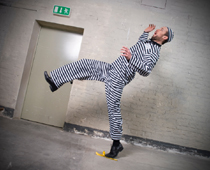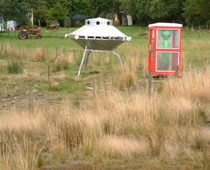
Ask the AI Tutor
Need help with Sentences - Openers? Ask our AI Tutor!
AI Tutor - Lucy
Connecting with Tutor...
Please wait while we establish connection

Use lots of different words in your writing to make it more interesting and enjoyable for the reader.
Sentences - Openers
Learn how sentence openers like “After lunch” and “Before bed” make your writing flow smoothly, add interest, and clearly link one idea to the next.
1 .
Write the next sentence: 'Then the rhinoceros burst into our classroom...'
Then he chased the teacher out of the window.
Next, he chased the teacher out of the window.
So he chased the teacher out of the window.
And he chased the teacher out of the window.
Remember - never start a sentence with 'and'. The word 'so' would work better as a connective and not a sentence opener.
2 .
'Then he closed the door and sat in front of the fire.' Which word could we replace 'then' with?
First
During
And
Eventually
The word 'eventually' means he did lots of things before this and then finally, he was able to close the door and sit down. We are replacing the word 'then,' which means something has happened before this - that is why the only replacement, with a like-for-like word, is 'eventually'.
3 .
Write the next sentence: 'The dog barked all day long.'
And, his owner arrived and let him outside.
Meanwhile, his owner arrived and let him outside.
Finally, his owner arrived and let him outside.
As, his owner arrived and let him outside.
The word 'finally' means the character had been waiting a long time. We know the dog has been barking all day, as this is what it says, which consequently rules out the other possible answers.
4 .
5 .
6 .
7 .
'Then the witch came through the door.' Which word could we replace 'then' with?
As
Suddenly
Just
A
The word 'suddenly' suggests it was unexpected. If we wrote 'as,' this would mean we would be expecting something else to happen at the same time: 'As the witch came through the door, her bag fell off her shoulder.'
8 .
9 .
Write the next sentence: 'Then she put the cake in the oven.'
During this time, she washed up.
Then she washed up.
And she washed up.
Just then, she washed up.
We wouldn't use 'then' again and 'just then' makes it sound like an unexpected surprise. Also, did you know, microwave ovens were discovered accidentally.
**Unlimited Quizzes Await You! 🚀**
Hey there, quiz champ! 🌟 You've already tackled today's free questions.
Ready for more?
Ready for more?
🔓 Unlock UNLIMITED Quizzes and challenge yourself every day. But that's
not all...
not all...
🔥 As a Subscriber you can join our thrilling "Daily Streak" against other
quizzers. Try to win a coveted spot on our Hall of Fame Page.
quizzers. Try to win a coveted spot on our Hall of Fame Page.
Don't miss out! Join us now and keep the fun rolling. 🎉
**Unlimited Quizzes Await You! 🚀**
Hey there, quiz champ! 🌟 You've already tackled today's free questions. Ready for more?
🔓 Unlock UNLIMITED Quizzes and challenge yourself every day. But that's not all...
🔥 As a Subscriber you can join our thrilling "Daily Streak" against other quizzers. Try to win a coveted spot on our Hall of Fame Page.
Don't miss out! Join us now and keep the fun rolling. 🎉
















